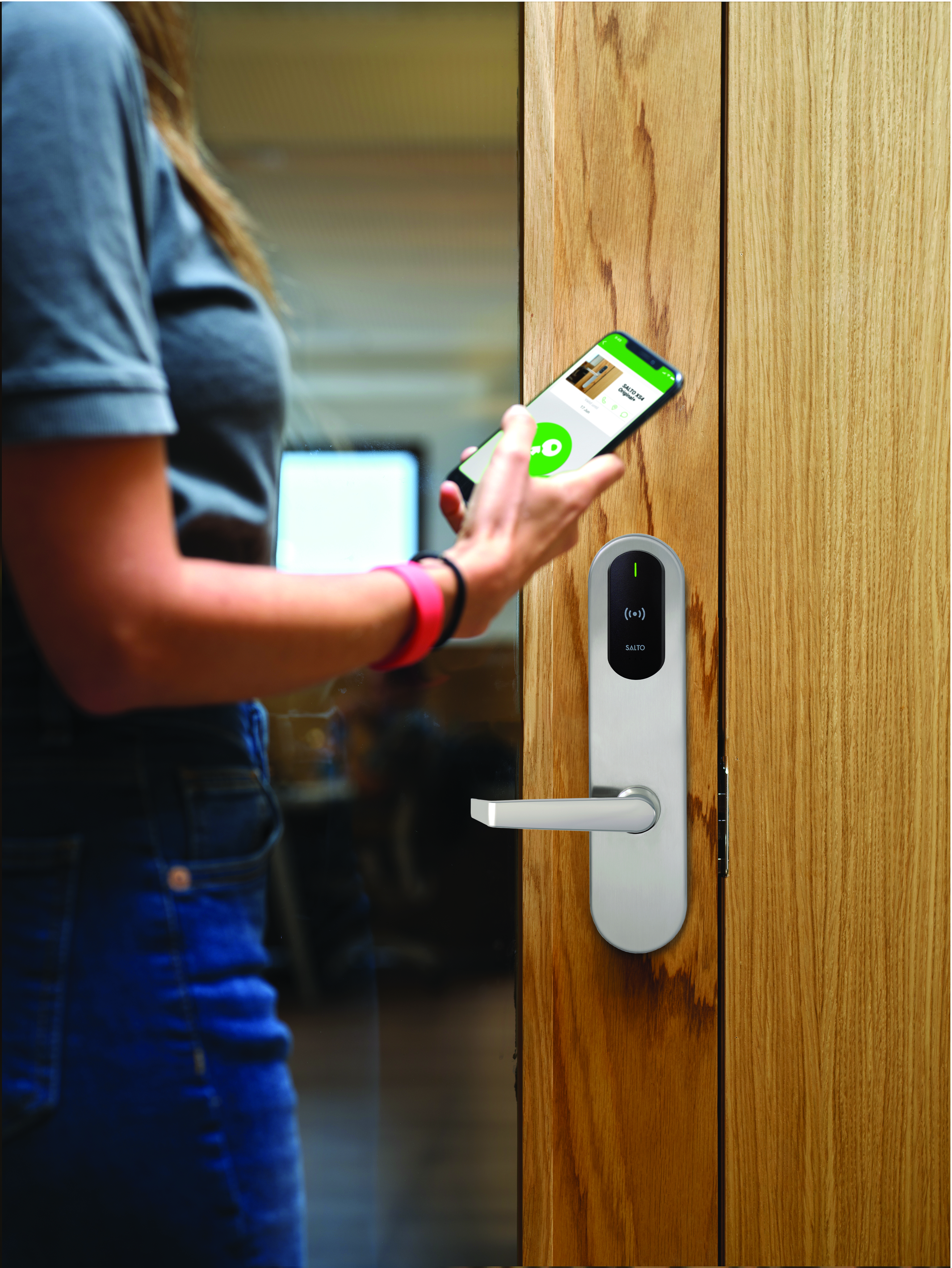Digital IDs and the Future of Campus Access Control
I want to share some thoughts on a topic that's been buzzing around the higher education industry: digital ID accessed through smartphone wallets and their potential to completely transform the student experience—on campus, in student living facilities, at sports and event venues, and even how students and staff pay for things on campus. As someone who has been navigating the digital tide in higher education for some time, I've seen firsthand how these changes are reshaping campuses across the country.

The Shift to Smart Technology
We're at a crossroads where modern smart technology isn't just a trend—it's an essential part of our everyday lives, and student living is no different. Universities are under immense pressure to offer more secure and more convenient keyless access experiences to tech-savvy students. Gone are the days when traditional ID cards were enough. With more student services becoming digital, more facilities adopting IoT and smart technologies, and growing governmental support for digital identity solutions, the demand for secure and efficient smart access control solutions in the higher ed environment—including school buildings and facilities as well as on-and off-campus student living communities—has never been higher.
Benefits of Smart Student IDs
So, what makes smart student IDs so special? They use the very latest in security technology to offer a highly secure method to provide real-time authentication and access based on the identity of the user. They blend the needs of students (and staff) into a single physical card or digital credential on a smartphone. This isn't just about convenience—it's about providing a secure and fast access solution while giving administrators, facilities managers, and campus safety staff better control and insights.
Imagine using your smartphone for:
- Accessing campus buildings and classrooms
- Using self-storage lockers
- Managing access to student accommodations
- Ticketing for sports or entertainment events
- Charging laundry and vending machine use
- Cashless campus shops and bookstore payments
- Booking study rooms and other spaces
- Checking out library materials
- Accessing campus/town transportation
- And much more!

Enhancing Operational Efficiency
Unified security systems improve school security by enhancing control over both physical and digital access. Mobile access goes beyond building entry, offering flexibility, convenience, and even better emergency preparedness. For example, Salto’s access control management platforms make managing access rights across all campus buildings and facilities and among all the various user types that need access to them a breeze. Updating a credential with the correct access is quick and easy and ensures that only authorized personnel can enter specific places during authorized times.
Rapid Emergency Response
When it comes to schools, student, faculty and staff safety is paramount. When a campus emergency arises, automated emergency response systems tailored to specific needs allow quick response to changing threat levels. Campus-wide smart access control offers the ability to enable localized lockdowns which can be activated by staff on the ground in emergencies, or remotely by administrators or law enforcement. Advanced systems allow you to immediately lock down specific doors, buildings, or entire campuses through the school’s access control system. Products like Salto electronic school door lock models have a built-in card reader on the inside of the lock with an AMOK feature that enables staff smart keycards to activate the lockdown function mode in order to lock down a room quickly. Only authorized users with AMOK privileges assigned to them can activate it.
Improving the Student Living Experience
Salto's Homelok platform offers operational efficiencies for student housing managers. They can manage access on the go, open doors or restrict access remotely, and receive notifications—all via a smartphone. This flexibility is crucial, especially in emergencies. Students can access their accommodation and facilities securely with smart keys, PIN codes, or remote access, eliminating the risk of lost, stolen or duplicated keys.
Gaining Campus Insights
Access control systems generate incredible amounts of valuable data for optimizing campus operations. From event planning to class scheduling, these insights help improve the flow of people, resources and traffic, reduce congestion, and enhance safety protocols.
From an administrative perspective, digital keys and smart credentials are affordable, flexible, scalable, and efficient. Students can download a university-branded app or receive a physical smart card on campus. Digital credentials are assigned to their devices for quick and secure use. Short-term credentials can also be issued to visitors and temporary staff as needed.
The Future of Connected Campuses
Universities aiming for robust security and a positive student experience must embrace these next-gen ID technologies and smart access solutions. Mobile-based credentials offer a user-friendly alternative to physical cards and expand mobile access for various campus services like notifications, cashless vending, library services, and accommodations. This shift not only simplifies the student experience but also significantly enhances operational efficiency. Imagine a campus where students can receive real-time notifications on their phones, pay for meals without fumbling for cash, seamlessly access digital and physical library resources, and enter their dorms without worrying about losing a physical key. This level of integration fosters a more connected, engaged, and safe campus environment.
Looking ahead, the future of connected campuses will likely see even deeper integration of smart technologies. We can expect to see advancements like biometric authentication, AI-driven security systems, and IoT-enabled devices that further streamline and secure campus operations. For instance, facial recognition technologies, like Salto’s Orion, could allow students to access buildings or check into classes without any physical ID at all, while AI could predict and mitigate security threats in real-time. Additionally, IoT devices could monitor everything from energy usage in dorms to the availability of study spaces, enhancing both sustainability and convenience. By embracing these technologies, universities will not only improve security and efficiency but also create a dynamic and responsive campus environment that truly supports and enhances the student experience.
Setting the Standard
Every day, millions of students rely on Salto smart credentials for fast and secure access across campuses. Salto's access control and ID management solutions secure thousands of doors, providing a safe and seamless environment. With a global presence and successful implementations at prestigious institutions like Cambridge, Oxford, Princeton, and many others, Salto continues to set the benchmark for access control in higher education.

The shift towards digital IDs and smart access control systems is revolutionizing how we secure and manage our campuses. It's an exciting time to be part of this digital transformation, and I can't wait to see where it takes us next.






